A Dangerous Walk: Record High Risk of Fatal Florida Pedestrian Accidents
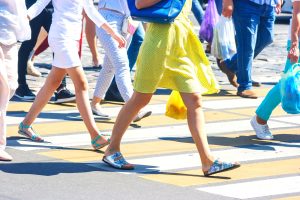 A sidewalk stroll in the South Florida sunshine should be a safe way to spend an afternoon. Unfortunately, walking alongside, in, around, and across Florida roadways is quite dangerous – and it’s only gotten worse in recent years. According to a new report by the Governors’ Highway Safety Association, the rate of deadly Florida pedestrian accidents ranks No. 2 in the nation, rising by 31 percent between 2020 and 2021. Nationally, drivers struck and killed nearly 7,500 people last year. That’s about 20 pedestrian accident deaths every day – more in any single year for the past 40.
A sidewalk stroll in the South Florida sunshine should be a safe way to spend an afternoon. Unfortunately, walking alongside, in, around, and across Florida roadways is quite dangerous – and it’s only gotten worse in recent years. According to a new report by the Governors’ Highway Safety Association, the rate of deadly Florida pedestrian accidents ranks No. 2 in the nation, rising by 31 percent between 2020 and 2021. Nationally, drivers struck and killed nearly 7,500 people last year. That’s about 20 pedestrian accident deaths every day – more in any single year for the past 40.
Pedestrian deaths are most common in urban areas, particularly at night, and especially October-January. People 70 and older accounted for 38 percent of pedestrian accident deaths. High vehicle speed, increasingly larger vehicle size, lacking pedestrian infrastructure, and growing driver distraction are all cited as contributing causes to this serious and growing problem.
These stark statistics overshadow the fact that every single one of those numbers is the devastating loss of someone’s somebody – mom, dad, brother, sister, daughter, son, grandparent, or friend. Compounding the grief for so many is the fact that a sizable percentage of Florida pedestrian accidents are caused by hit-and-run drivers.
Our team of Fort Myers personal injury lawyers recognizes the unique challenges in pursuing civil litigation for pedestrian accidents. We have a track record of notable success in this area, even with more challenging cases. We’re committed to helping Southwest Florida pedestrian accident victims and their loved ones navigate their next steps, identifying avenues for potential legal action and offering advice on the most viable approaches. Continue reading





 Florida Personal Injury Lawyer Blog
Florida Personal Injury Lawyer Blog



 No two crash claims are going to be exactly the same. And Florida motorcycle accident claims especially tend to be a bit more complicated than your “typical” crash case (to the extent such a thing exists). There are a few reasons for this, as our Fort Myers motorcycle accident lawyers will explain further down.
No two crash claims are going to be exactly the same. And Florida motorcycle accident claims especially tend to be a bit more complicated than your “typical” crash case (to the extent such a thing exists). There are a few reasons for this, as our Fort Myers motorcycle accident lawyers will explain further down.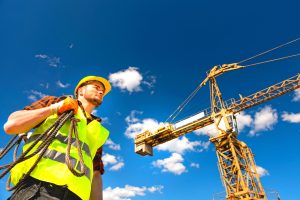 Construction is an industry vital to the growth of our communities. Still, there’s no question it’s also a dangerous profession. The
Construction is an industry vital to the growth of our communities. Still, there’s no question it’s also a dangerous profession. The 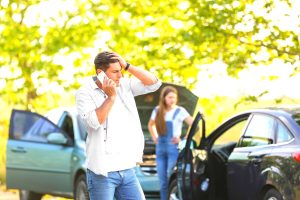 Every single day, there are an average of 1,050 Florida car accidents, according to the
Every single day, there are an average of 1,050 Florida car accidents, according to the 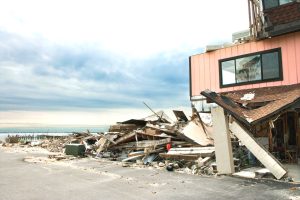 Southwest Florida is still reeling from the unprecedented devastation of Hurricane Ian, a huge storm with near-Category 5 winds and storm surges that reached 12-18 feet in some areas of Lee County.
Southwest Florida is still reeling from the unprecedented devastation of Hurricane Ian, a huge storm with near-Category 5 winds and storm surges that reached 12-18 feet in some areas of Lee County.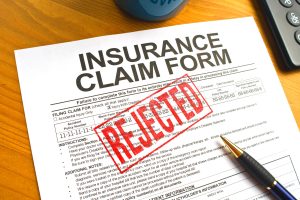 If you are a resident or property owner in Southwest Florida (particularly in Lee County, Collier County, and Charlotte County), odds are fair that you’re dealing with some type of insurance claim due to destruction caused by Hurricane Ian. Although insurance companies can be frustrating to work with even under “normal” circumstances, keeping up with your claim can become 10 times more stressful in the wake of a natural disaster. One thing to bear in mind is that if the insurers do not respond to your claim in good faith, it may be possible to hold them accountable with a Florida bad-faith insurance claim.
If you are a resident or property owner in Southwest Florida (particularly in Lee County, Collier County, and Charlotte County), odds are fair that you’re dealing with some type of insurance claim due to destruction caused by Hurricane Ian. Although insurance companies can be frustrating to work with even under “normal” circumstances, keeping up with your claim can become 10 times more stressful in the wake of a natural disaster. One thing to bear in mind is that if the insurers do not respond to your claim in good faith, it may be possible to hold them accountable with a Florida bad-faith insurance claim.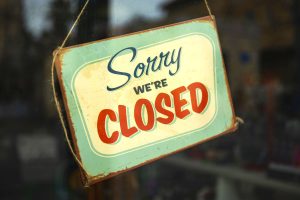 The number of Florida insurance claims filed after Hurricane Ian is steadily rising, with the
The number of Florida insurance claims filed after Hurricane Ian is steadily rising, with the 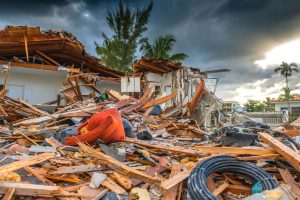 Many in our Southwest Florida community who sustained Fort Myers property damage during Hurricane Ian are wondering where to even begin when it comes to filing insurance claims. Roofs were blown off. Lanais are no more. Vehicles were flooded. Homes were flooded if not entirely swept away.
Many in our Southwest Florida community who sustained Fort Myers property damage during Hurricane Ian are wondering where to even begin when it comes to filing insurance claims. Roofs were blown off. Lanais are no more. Vehicles were flooded. Homes were flooded if not entirely swept away.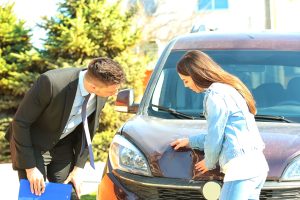 Despite warm-and-fuzzy slogans such as “like a good neighbor” and “you’re in good hands,” insurance companies are not, in fact, looking out for your best interests. In fact, adjusters actively pursue every opportunity to minimize or deny claim payouts at every turn possible; most often they are looking out for their shareholders or the interests of the corporation. As Fort Myers injury lawyers, we’ve become closely familiar with all the ways in which insurance adjusters lull claimants into a false sense of security as they seek out the slightest inconsistency that may allow them to cite a coverage exemption or a reduction in payout.
Despite warm-and-fuzzy slogans such as “like a good neighbor” and “you’re in good hands,” insurance companies are not, in fact, looking out for your best interests. In fact, adjusters actively pursue every opportunity to minimize or deny claim payouts at every turn possible; most often they are looking out for their shareholders or the interests of the corporation. As Fort Myers injury lawyers, we’ve become closely familiar with all the ways in which insurance adjusters lull claimants into a false sense of security as they seek out the slightest inconsistency that may allow them to cite a coverage exemption or a reduction in payout.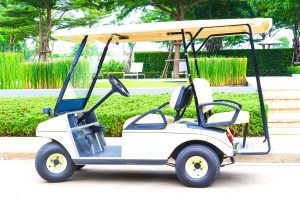 Golf carts were designed with the goal of making it easier for golfers to efficiently traverse the long stretches on the green. But here in South Florida, they’ve become fairly ubiquitous in residential neighborhoods, with operators ranging from spritely senior citizens to carefree kids as young as 8 or 9. It’s also not uncommon to spot them in mobile home communities, airports, sporting events, or at amusement parks. As a Fort Myers golf cart injury lawyer can explain, the presence of golf carts on Florida roadways has led to an increase of dangerous collisions with cars and pedestrians, as well as tipping and rollovers.
Golf carts were designed with the goal of making it easier for golfers to efficiently traverse the long stretches on the green. But here in South Florida, they’ve become fairly ubiquitous in residential neighborhoods, with operators ranging from spritely senior citizens to carefree kids as young as 8 or 9. It’s also not uncommon to spot them in mobile home communities, airports, sporting events, or at amusement parks. As a Fort Myers golf cart injury lawyer can explain, the presence of golf carts on Florida roadways has led to an increase of dangerous collisions with cars and pedestrians, as well as tipping and rollovers.






